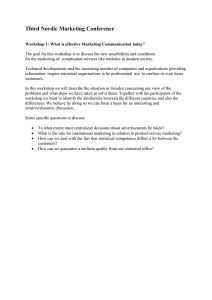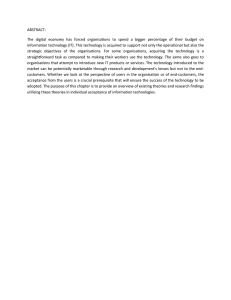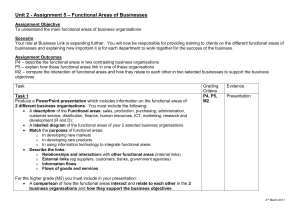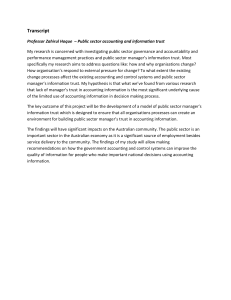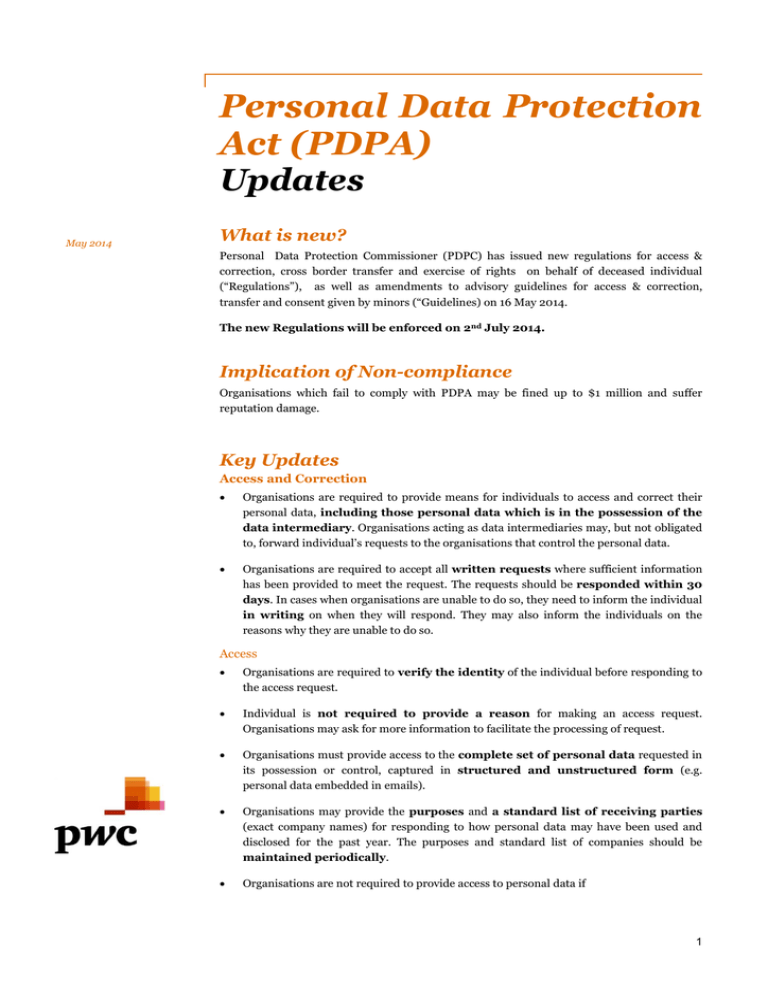
Personal Data Protection
Act (PDPA)
Updates
May 2014
What is new?
Personal Data Protection Commissioner (PDPC) has issued new regulations for access &
correction, cross border transfer and exercise of rights on behalf of deceased individual
(“Regulations”), as well as amendments to advisory guidelines for access & correction,
transfer and consent given by minors (“Guidelines) on 16 May 2014.
The new Regulations will be enforced on 2nd July 2014.
Implication of Non-compliance
Organisations which fail to comply with PDPA may be fined up to $1 million and suffer
reputation damage.
Key Updates
Access and Correction
Organisations are required to provide means for individuals to access and correct their
personal data, including those personal data which is in the possession of the
data intermediary. Organisations acting as data intermediaries may, but not obligated
to, forward individual’s requests to the organisations that control the personal data.
Organisations are required to accept all written requests where sufficient information
has been provided to meet the request. The requests should be responded within 30
days. In cases when organisations are unable to do so, they need to inform the individual
in writing on when they will respond. They may also inform the individuals on the
reasons why they are unable to do so.
Access
Organisations are required to verify the identity of the individual before responding to
the access request.
Individual is not required to provide a reason for making an access request.
Organisations may ask for more information to facilitate the processing of request.
Organisations must provide access to the complete set of personal data requested in
its possession or control, captured in structured and unstructured form (e.g.
personal data embedded in emails).
Organisations may provide the purposes and a standard list of receiving parties
(exact company names) for responding to how personal data may have been used and
disclosed for the past year. The purposes and standard list of companies should be
maintained periodically.
Organisations are not required to provide access to personal data if
1
o
The request falls under the exceptions in PDPA;
o
The documents or systems do not contain personal data; or
o
The personal data is no longer in the organisations’ possession or control
and how such personal data may have been used or disclosed.
Organisations may inform individual about self-help options for access to his/her
personal data if available (e.g. online portal).
Organisations must provide a copy of the personal data in documentary form upon
request. If they are unable to provide in documentary form, organisations may provide
the individual with an opportunity to examine the requested data.
Organisations may charge a reasonable fee to the individual for access request to recover
their incremental costs of providing access and must provide the individual a
written estimate of the fee. Organisations may refuse to provide access until the
individual agrees to pay the fee.
Correction
Organisations should not impose a charge for correction of personal data.
Organisations must send the corrected personal data to specific organisations to
which they have disclosed to for the past year.
Organisations should annotate that the personal data are not corrected in cases
where correction would not be made. As a good practice, organisations may also annotate
the reasons why correction should not be made.
Inbound Data Transfer
Organisations in Singapore (not data intermediary of another organisation), who are
collecting personal data overseas for use and disclosure for its own purposes, are required to
comply with all Data Protection Provisions from the time it seeks to collect the
personal data or from the time it brings the personal data into Singapore. Data intermediaries
(e.g. data hosting company) are only subject to the Protection and Retention Limitation
Obligations.
Outbound Data Transfer
Transferring organisations are considered to be compliance with the Transfer Limitation
Obligations in the following situations:
a)
Individual has given consent after reading a written summary of the extent to
which his/her personal data will be protected in the countries and territories that the
personal data will be transferred to;
b)
The transfer is necessary for the performance of a contract between the
organisation and individual / between the organisation and a third party entered into
at the individual’s request. E.g. A travel agency transferring the customer’s personal
data to the overseas hotel for reservation;
c)
The transfer is necessary for a use or disclosure where individual’s consent is
not required under PDPA. E.g. Disclosure to overseas hospital to respond to an
emergency that threatens an individual’s life and will not be used for other purpose;
d)
The personal data is in transit (e.g. personal data from overseas passing through
servers within Singapore to another country);
2
e)
The personal data is publicly available in Singapore;
f)
Impose legally enforceable obligations on the recipient to provide to the
personal data transferred a standard of protection that is comparable under PDPDA
such as :i.
Any law;
ii.
Any contracts with oversea recipient that requires the recipients to
provide a comparable standard of protection and specifies the countries &
territories to which the personal data may be transferred to; or
iii.
Have binding corporate rules with overseas recipient(s) to provide a
comparable standard of protection, specify the recipients, countries and
territories to which the binding corporate rules apply, and rights and
obligations provided by the rules.
Exercise of rights on behalf of deceased individual
Authorised persons may exercise the following rights in relation to the protection and
disclosure of the deceased individual1’s personal data:
o
Giving or withdrawing consent for the purposes of disclosure;
o
Bringing an action for relief in civil proceedings in court;
o
Making a complaint under PDPA.
Authorised persons may be an appointed person under the deceased individual’s will
or the deceased individual’s nearest relative determined under the Act. Renunciation
of the grant of any right must be made in writing.
The Regulation does not apply if the authorised person is legally incapable of
exercising the rights or refuses to make decision concerning the exercising of rights.
Consent given by minor
PDPA does not define the age threshold of minor. The validity of the consent given by
minor will depend on other legislation and the common law.
In determining if the validity of the consent, organisations should consider if the minor
understands the nature and consequences of giving consent.
PDPC adopts as a rule of thumb that minor who is at least 13 years old will have
sufficient understanding to give consent for himself / herself. The minor’s parents or legal
guardians may give consent on behalf of the minor under 13 years old.
Organisations may consider putting in precautions when collecting, using or disclosing
minor’s personal data. E.g. Making the terms and conditions in language that is readily
understandable by minor or with the help of visual aids.
Organisations need to take extra steps to verify the accuracy of the personal data,
especially if the inaccuracy may have severe consequences for the minor.
1
PDPA is applicable to personal data of deceased individual who has been dead for no longer than 10
years.
3
What do I need to do?
Organisations will need to:
Develop clear action plan to meet the new compliance requirements;
Revisit your current personal data protection policy and include the key updates to
the policy, process, procedure document; and
Implement and communicate the changes to staff.
If you require help, please contact the following subject matter experts
Tan Shong Ye | Partner
+65 6236 3262
shong.ye.tan@sg.pwc.com
Yap Yee Chin | Associate Director
+65 6236 3351
yee.chin.yap@sg.pwc.com
Michelle Xie | Manager
+65 6236 3395
michelle.qy.xie@sg.pwc.com
This publication has been prepared for general guidance on matters of interest only, and does not constitute professional
advice. It does not take into account any objectives, financial situation or needs of any recipient; any recipient should not
act upon the information contained in this publication without obtaining independent professional advice. No
representation or warranty (express or implied) is given as to the accuracy or completeness of the information contained
in this publication, and, to the extend permitted by law, PricewaterhouseCoopers, its members, employees and agents do
not accept or assume any liability, responsibility or duty of care for any consequences of you or anyone else acting, or
refraining to act, in reliance on the information contained in this publication or for any decision based on it.
© 2014 PwC. All rights reserved. PwC refers to the PwC network and/or one or more of its member firms, each of which
is a separate legal entity. Please see www.pwc.com/structure for further details.
4

